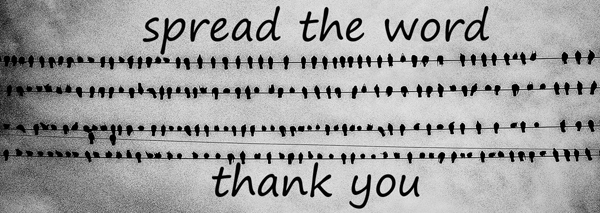fiery
Elon Musk interview goes viral and truth leaks
CNBC ran a
character-assassinating story yesterday headlined, “Elon Musk claims advertisers are trying to
'blackmail' him, says 'Go f--- yourself’.” It’s true that
Musk did seem a wee bit tense in a hostile interview
that went viral yesterday, while sparring with New
York Times reporter Andrew Ross Sorkin. Among other
moments, the article described a colorful rant that
exploded into a viral clip that most news junkies
will already have seen. But the article failed to
mention what in my view was Musk’s most important comment: Elon
described something about the nature of good and
evil that stabbed woke, leftist politics right
through the eye.
CLIP: Elon Musk in hostile NYT interview
opines on the nature of good and evil (1:12)
(f-bomb).
To set the table,
while denying he was on any kind of “apology tour,”
Musk is almost certainly engaged in damage control
after being attacked for some allegedly
‘antisemitic’ tweets about the Israel-Hamas war
(which he later deleted and has apologized for). In
response, a bunch of big advertisers boycotted
Twitter. So Musk probably agreed to this interview
as part of a rehabilitation plan, although you
couldn’t tell that from his feisty tone.
Musk clearly did not
want to be there. Sorkin was more excited than a
Labrador puppy catching a glimpse of its leash at
walking time.
Interviewer Andrew
Sorkin is a financial columnist, an assistant NYT
business editor, and a co-anchor on CNBC’s
well-regarded financial show Squawk Box.
During the interview, Sorkin pushed Musk hard over
Musk’s alleged antisemitism, his opinionated
tweets, and advertiser’s responses, at one point
referring as an example to Disney’s CEO Bob Iger.
After a fiery
back-and-forth, in which Musk, perhaps recklessly,
vowed he’d rather Twitter go bankrupt than kowtow to
advertisers’ political preferences, Musk said
something very profound. At one point, the
conversation wandered to Tesla, because Elon was
noting how Tesla captured the electric car market
without advertising. Then Elon boasted — fairly —
that as Tesla’s CEO, he has arguably done more “for
the climate” than any other individual on Earth.
Sorkin, smelling
fresh meat, immediately prompted Elon: how did he feel
about being that one individual. But Elon took it
in a different direction, replying by saying he doesn’t
care; since he’s using an internal
yardstick, he doesn’t care about how other people
perceive what he’s doing. And
then Elon drove a militarized bulldozer directly
through woke virtue signaling:
“What
I care about is the reality
of goodness, not the perception
of it. And what I see all over the place is
people who care about looking good, while
doing evil. F— them."
Sorkin
immediately recognized he’d overplayed his hand,
that something significant had just happened, and
he wasn’t sure exactly what to do about it. For a
second the skilled interviewer was
uncharacteristically speechless. He then adroitly
changed the subject and none of the press about
the interview has mentioned that quote.
But
what Musk said pierced the heart of everything
that is wrong with the world right now. The elites
have inverted traditional ethics; they call good
“evil,” and they call evil “good.” The perception of
goodness is more highly valued by
elites than is actually doing
good. People
used to be mocked for empty virtue signaling,
but somehow now even obviously
fake virtue signaling — not product
quality — is required to keep a
corporation financially viable. That’s how Bud
Light wound up putting a mentally-ill,
unattractive cross-dresser on its brand label.
The
answer is simple: We need to get back to valuing doing
good more than seeming
good. Musk was right.
But unfortunately
the interview got more attention yesterday for
Musk’s admittedly inflammatory comment that Twitter
advertisers can go pound sand (Musk’s exact quote
suggested an anatomically-impractical solo
maneuver). Musk frankly admitted that, without
advertisers, Twitter would go bankrupt. So. But he
warned that the public would ultimately judge who
was right. Musk alluded to the irony that Disney,
who is boycotting Twitter, is itself being boycotted
over its woke politics.
If you’re
interested, here’s a longer clip between Sorkin and
Musk over the advertising issue, which includes the
entire segment I described above in its complete
context. CLIP: Musk tells advertisers to G.F.Y. with
full context (4:46) (language).
Musk’s critics
clapped back with a cafeteria of criticism. For
example, they argued there is ‘no evidence’ of a
Disney boycott. But I’m not too sure about that. Disney stock
fell -14.5% in 2021 and a shocking -44% in 2022.
And Disney park attendance has never recovered and
remains far below pre-pandemic levels.
Critics respond to these data arguing that
pandemic knock-on effects hurt the entire vacation
travel industry. But yesterday, Investors.com
ran a story about Royal Caribbean’s stock
performance headlined, “Travel Leader Sails Toward New Buy Point
As Profits Swell.” So.
Unsurprisingly,
long salivating for a chance to nail Twitter,
corporate media pounced with uncontrolled glee.
Rolling Stone’s headline yesterday called Elon
‘unhinged’:
Newsweek tried to
make the rift between Twitter and Disney worse:
The New York Times,
non-paywalled, and linking the full interview,
primly held its nose over Elon’s frank, adult
language:
We’ll see whether
Twitter recovers from this fake, made-up, tempest in
a chai latte. Welcome to the culture wars, Elon.
(read
more)



